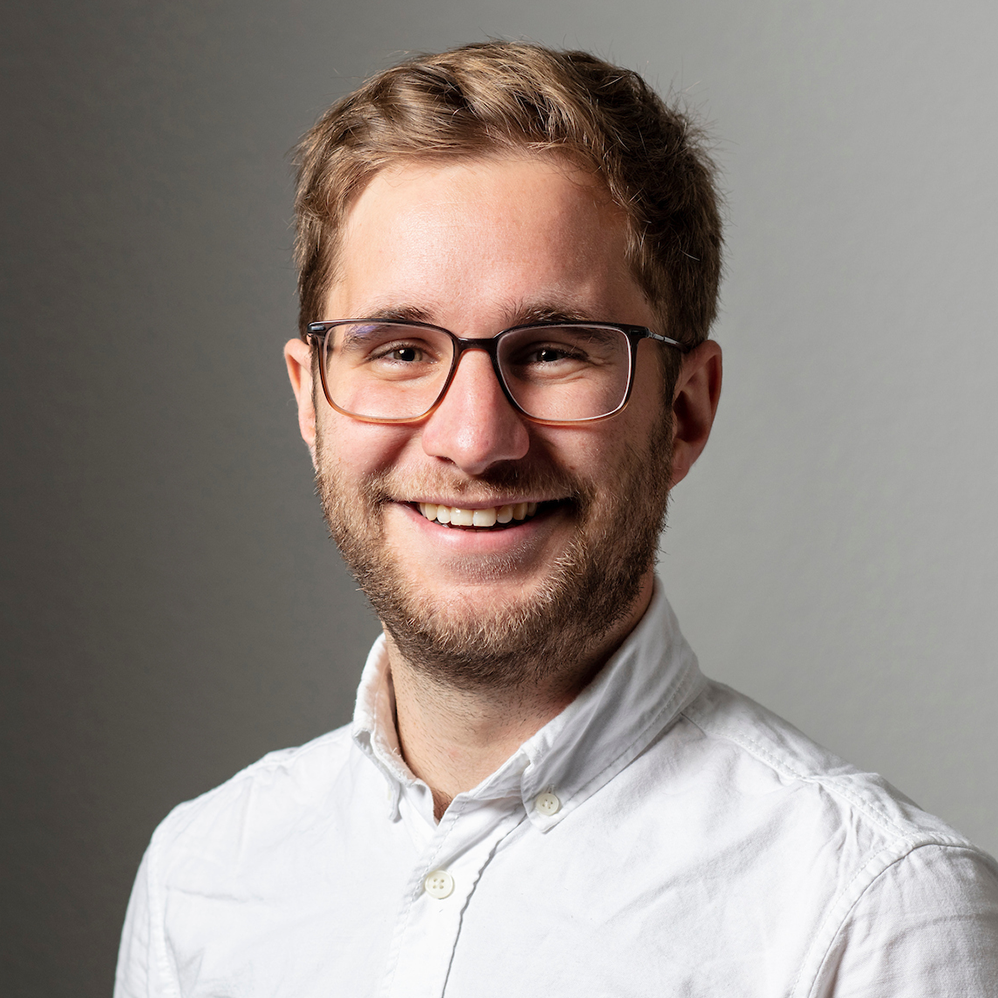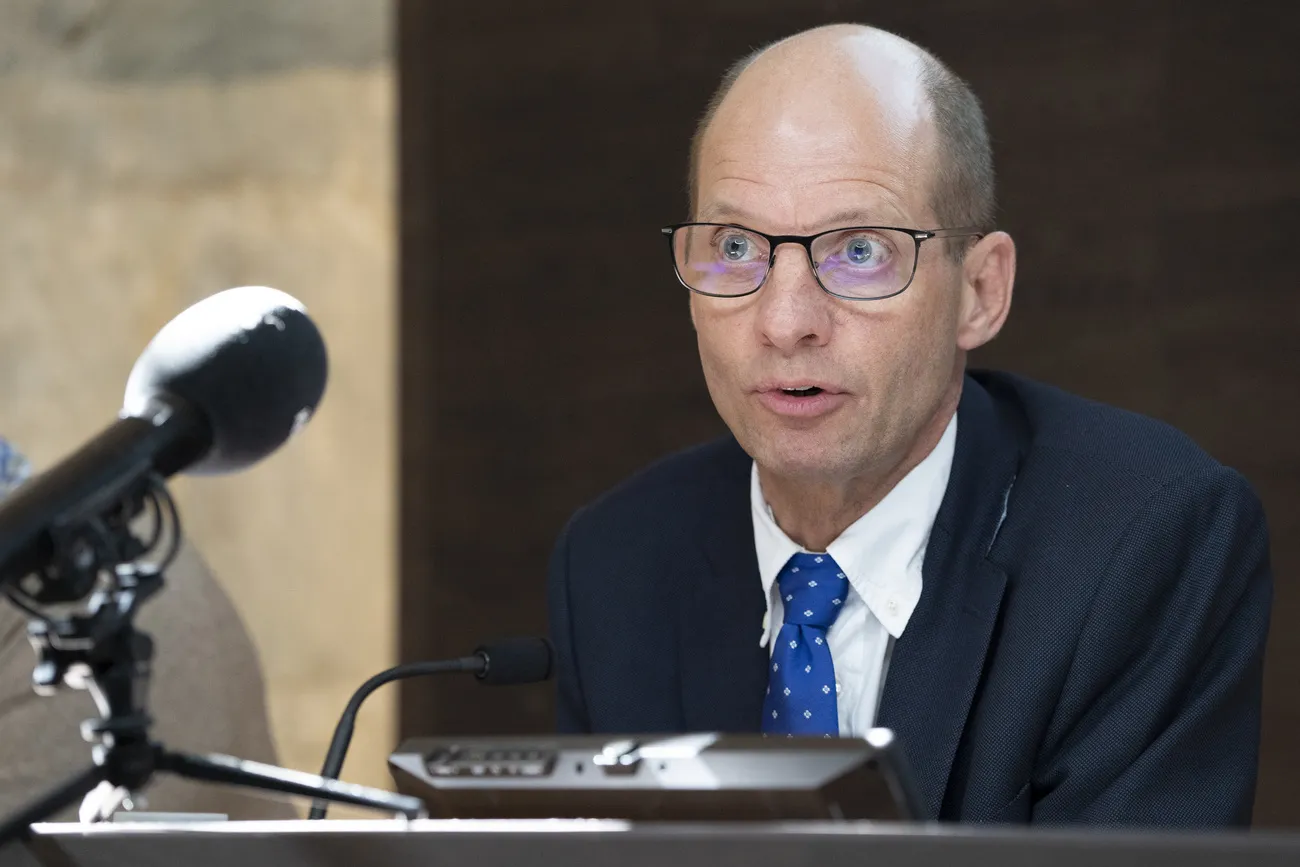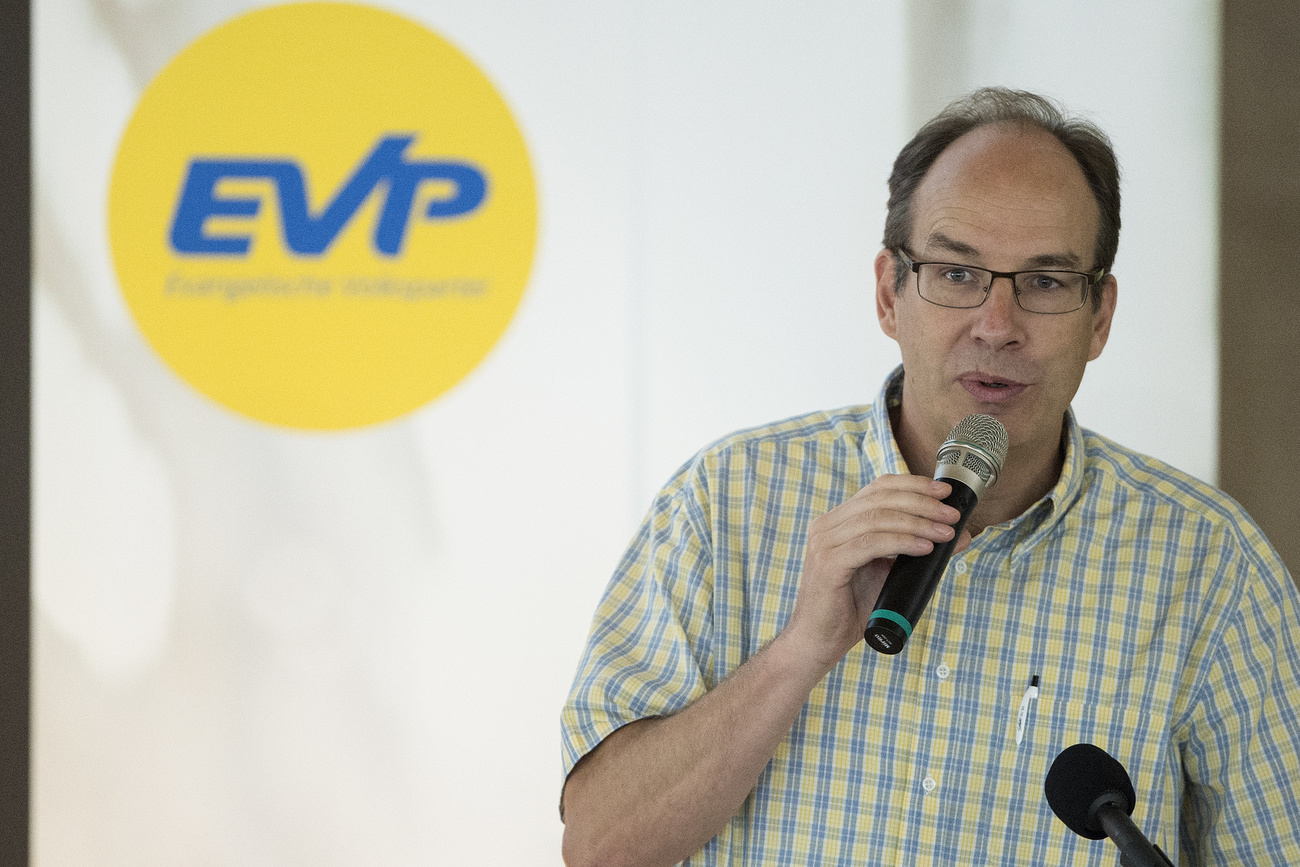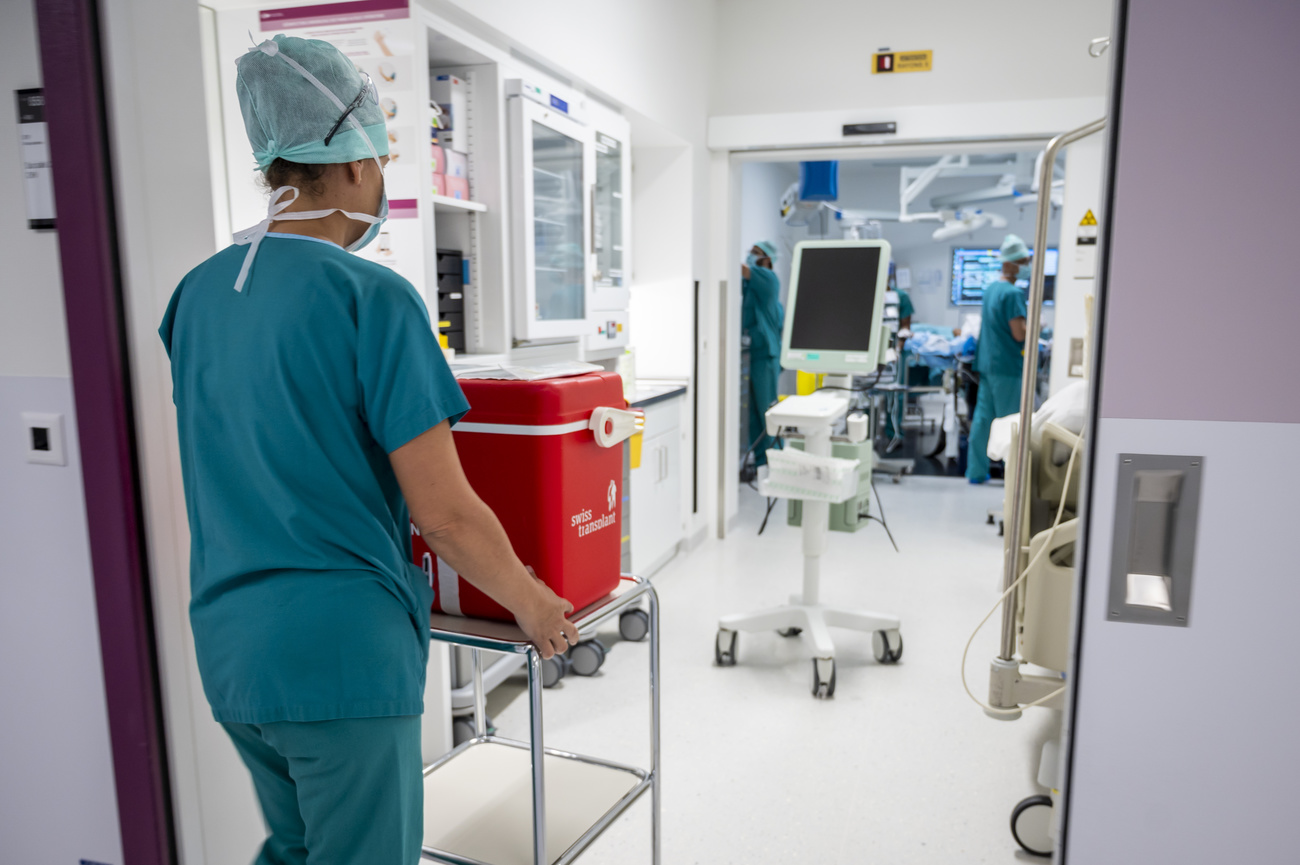What is your position on organ donation?
A proposed change to the law in Switzerland will presume the deceased wanted to be a donor unless they explicitly said otherwise while alive. The issue raises several ethical concerns. Should donation be the default?
Leave a comment below to let us know what you think about this issue!
From the article Explicit vs presumed consent: the Swiss referendum on organ donation
From my spiritual perspective, the human body is a gift and should not be modified in such a radical way. I believe that life and death are part of the natural cycle and that we should accept them as such.
Desde mi perspectiva espiritual, el cuerpo humano es un regalo y no debería ser modificado de manera tan radical. Creo que la vida y la muerte son parte del ciclo natural y que debemos aceptarlas como tal
It is certainly a delicate subject. I am an organ donor, my 22 year old son is not and I was a little amused when I asked him if he wanted to be one and he answered that he didn't like the idea of someone else having his little parts.... It probably has to do with the remoteness with which young people view death. I think he will change his mind as he gets older.
In my opinion, the authorities do not do enough to make the population aware of the benefits of collective organ donation at the moment of death. There is a great deal of mistrust regarding the proper use of harvested organs and many people here in Durango, Mex. have heard stories of unclear circumstances surrounding this practice.
Personally, a neighbor, a local acquaintance, lost her young son in an accident. She had been asking SEMEFO to release his body and they refused for three days with implausible pretexts. The mayor at that time was an ophthalmologist recognized for the volume of cornea transplants he performed. When his son's body was delivered to him, he did not have his eyes. In addition to suffering the loss of her son, the lady had to overcome the aggression inflicted by corrupt authorities. She did not know where to turn and lives with this pain and frustration.
Ciertamente es un tema delicado. Yo soy donador de órganos, mi hijo de 22 años no lo es y me causó un poco de gracia cuando le pregunte si quería serlo y me contesto que no le gustaba la idea de que alguien más tuviera sus partecitas... Seguramente tiene que ver con la lejanía con la que los jóvenes ven la muerte. Creo que cambiará de parecer con la edad.
A mi parecer, las autoridades no hacen lo suficiente para sensibilizar a la población acerca de los beneficios de la donación colectiva de órganos al momento de la muerte. Existe una gran desconfianza con respecto al uso adecuado de los órganos extraídos y es que muchas personas aquí en Durango, Mex. han sabido de algún relato de circunstancias poco claras entorno a esta práctica.
De manera personal, una vecina, conocida de la zona, perdió a su hijo joven en un accidente. Ella estuvo solicitando al SEMEFO que le entregaran su cuerpo y se negaron durante tres días con pretextos inverosímiles. El alcalde en esa época era oftalmólogo reconocido por el volumen de trasplantes de córnea que realizaba. Cuando le entregaron el cuerpo de su hijo, no tenía sus ojos. La señora aparte de sufrir la pérdida de su hijo tuvo que superar la agresión propinada por las autoridades corruptas. No supo a quién recurrir y vive con ese dolor y frustración.
Thank you Swiss people,
For the fact that you have finally decided in favor of human life and not against it.
For the fact that the majority of the people has decided rather for a cut up dead instead of two beautifully prepared dead.
For the fact that the egoistic, proud people, who do not want to save at least someone else after their death, but prefer to be buried "with dignity" and thus possibly tear someone else to death, finally have to admit when they want to pull through their ego trip instead of helping others.
In another comment I read the apocalyptic statement "nothing is as it used to be."
And I am glad about that, finally a step away from this outdated, egoistic society!
Bravo, Swiss people, here's to many more steps!
Danke Schweizer Volk,
Dafür, dass ihr euch endlich mal für, und nicht gegen Menschenleben entschieden habt.
Dafür, dass sich die Mehrheit des Volkes lieber für einen Zerschnittenen Toten anstatt zwei schön aufbereitete Tote entschieden hat.
Dafür, dass die egoistischen, stolzen Menschen, welche nicht nach ihrem Ableben mindestens noch jemand anderes retten wollen, sondern lieber "würdevoll" begrabt werden und somit evtl. jemand anderes in den Tod reissen, endlich zugeben müssen, wenn sie ihren Egotrip durchziehen wollen anstatt anderen zu helfen.
In einem anderen Kommentar las ich die apokalyptische Aussage "nichts ist mehr, wie es früher war."
Und ich bin froh darum, endlich einen Schritt weg aus dieser veralteten, egoistischen Gesellschaft!
Bravo, Schweizer Volk, Auf viele weitere Schritte!
The majority vote is yes to this opt out register. More administration, more data collection adding further layers to the infringement of personal privacy, increased state interference in, and erosion of our individual freedom and of control over our own lives with fear of moral judgement on the dying, or even before, who choose to opt out.
In the rueful words of an elderly friend referring to Covid and the Ukraine war and its appalling consequences, „nichts ist wie es einmal war!“
No. I would suggest donation is a gift and not a right for it’s recipients.
I would prefer to continue to support the freedom of choice to opt in and see the use of further quality and unbiased but non intrusive education to assist individual decision making. This appears less coercive and some people might feel they are under an obligation to donate and not opt out. Those lacking physical, mental,age-related or any other temporary or permanent incapacity will have to rely on the decision of others to remain on the register or be opted out.
Opting out appears to be yet another privacy intrusion as it forces everyone onto a data base whereas currently an individual should only be on it if they choose to donate. Now there is the potential to name and shame or place feelings of guilt on those who opt out regardless of their personal reasons under which they are under no obligation to disclose or have to justify.
I am not convinced at the bedside at the time a decision has to made that all will be any more clear cut than is currently the case.
Educating 16-17 year olds in schools is the key to a society that educates about organ and tissue donation and promotes the values of solidarity, generosity and altruism. It is also an extraordinary opportunity to raise awareness of the inestimable value of a healthy body and the importance of adopting healthy lifestyle habits. The growing demand for organs is outstripping supply due to the increase in chronic diseases. Therefore, it is necessary to work upstream with the world of education and not only through awareness campaigns. According to research, 98% of families who have been made aware say yes to organ donation as long as they have been approached and accompanied by trained medical personnel whose role is recognized administratively.
L' éducation auprès des jeunes de 16-17 ans en milieu scolaire est la clé de voûte pour une société éduquer au don d'organes et de tissus en plus de promouvoir les valeurs de solidarité, de générosité et d'altruisme. C'est aussi une occasion extraordinaire faire prendre conscience de la valeur inestimable d'un corps en santé et de toute l'importance d'adopter de saines habitudes de vie. Le nombre croissant en demande d'organes dépasse l'offre du à l'augmentation des maladies chroniques. Alors il faut travailler en amont avec le monde de l'éducation et non uniquement par des campagnes de sensibilisation. Selon les recherches 98% des familles sensibilisées disent oui au don d'organes dans la mesure où elles ont été approchées et accompagnées par un personnel médical formé et dont le rôle est reconnu administrativement.
it's fine, you think what you want; don't forget that you are not more eternal than the humans who are going to disappear one day or the other. Good luck...
c'est bien, vous pensez ce que vous voulez; n'oubliez pas que vous n'êtes pas plus éternel que les humains portés à disparaitre un jour où l'autre. Bonne chance...
This is a short cut and it works. Not many people will opt out. But that doesn’t make it right. Do a better job educating and convincing people to make the choice themselves.
yes, we have to be serious in all cases. No one is eternal and if someone tries to think like you, then a lot of the abortions that are performed should be banned....
oui, il faut être sérieux dans tous les cas de figure. Personne n'est éternel et si quelqu'un essaye de penser comme vous, alors il faudrait interdire une grande partie des avortements qui sont pratiqués....
If you're deemed too difficult to save, or really not worth it due to the opinion of doctors in charge of your situation, you may be harvested to try and save other people's lives deemed worth saving. These decisions are made by doctors with consultation of families involved but giving them the legal consent to just harvest your organs kind of makes it especially easy for doctors to harvest from you instead of trying to save you. Then there could be some doctors who take bribes to harvest unethically. All of what I'm suggesting is hopefully very unlikely but maybe possible in some situations if this law passes. I'm just throwing this out there for thought. There is currently black market organ transplantation in parts of the world...
Is organ donation really useful? If it gives eternal life, perhaps. How many years does a person have to live? Life should not be made a contest of length.
Le don d'organes est-il vraiment utile? s'il donne la vie éternelle, peut-être. Combien d'année une personne a-t-elle à vivre? On ne devrait pas faire de la vie un concours de durée.
Absolutely organ donation should be opt out, not opt in. Too many people don’t give it enough thought and therefore don’t bother to sign up for it, even though they are not against it.
Organ donation is of course a very personal choice and I think it should be written on the identity card, as well as the blood type. In case of an accident, the family will have a simpler choice and of course, if it can save lives I am for it.
Le don d'organe est bien entendu un choix très personnel et je trouve qu il devrait être inscrit sur la carte d identité, ainsi que son groupe sanguin. En cas d accident, la famille aura un choix plus simple et bien entendu, si cela peut sauver des vies je suis pour.
I believe that "we have no choice but to allow transplantation at present. This is because there is no other practical method. Even with the ethical issues, the small number of donors, and the risk of rejection, we have no choice but to rely on transplantation. And the number of people who can be saved by transplantation will be limited.
However, regenerative medicine is definitely advancing, and we believe that the donor problem will disappear. Right now it is only in the laboratory, but there is hope that human organs can be made in pigs and other animals, or 3D printed using human cells as the material. That time is coming, and it is getting closer.
Once regenerative medicine is established, there will be fewer and fewer cases of transplants being done and it will become obsolete. The question is when, not in 10 or 20 years.
私は、「現在は移植を許容するしかない」と考えます。他に実用化された方法がないからです。倫理的な問題や、提供者が少ないこと、拒否反応の危険、これらがあっても、移植に頼るしかないです。そして移植で助かる人は限定されるでしょう。
しかし、再生医療は確実に進歩していますから、提供者問題は無くなると考えます。今は実験室の中だけですが、豚などの体内で人間の臓器を作ったり、人間の細胞を素材に3Dプリントしたりと、希望があります。そのときが来るのは、近づいています。
再生医療が確立されてしまえば、移植がされる事例は少なくなり、廃れると思います。問題は、それがいつなのかです。10年や20年では、困難だと思います。
I am convinced that after death I will no longer care or feel whether one or more organs are removed from me for reuse or whether they are all incinerated. That is why I signed a declaration of consent a long time ago. But according to my "knowledge" there are only very few people who deal ralistically, respectively emotionless, with the "after death". Therefore I find the solution to be voted not bad.
Ich bin ueberzeugt nach dem Tod interessiert oder spuere ich es nicht mehr, ob mir ein oder mehrere Organe zur Wiederverwendung entnommen werden oder ob alle eingeaeschert werden. Deshalb habe ich schon lange eine Einverstaendniss- Erklaehrung unterschrieben. Aber gemaess meinem "Wissen" gibt es nur sehr wenige Leute die sich ralistisch, bezw. emotionslos, mit dem "nach dem Tod" beschaeftigen. Deshalb finde ich die abzustimmende Loesung nicht schlecht.
I am convinced that after death I will no longer care or feel whether one or more organs are removed for reuse or whether they are all incinerated. That is why I signed a declaration of consent a long time ago. But according to my "knowledge" there are only very few people who deal ralistically, respectively emotionless, with the "after death". Therefore I find the solution to be voted not bad.
Ich bin ueberzeugt nach dem Tod interessiert oder spuere ich es nicht mehr, ob mir ein oder mehrere Organe zur Wiederverwendung entnommen werden oder ob alle eingeaeschert werden. Deshalb habe ich schon lange eine Einverstaendniss- Erklaehrung unterschrieben. Aber gemaess meinem "Wissen" gibt es nur sehr wenige Leute die sich ralistisch, bezw. emotionslos, mit dem "nach dem Tod" beschaeftigen. Deshalb finde ich die abzustimmende Loesung nicht schlecht.
Two years ago our daughter (mother of three children) had a kidney/pancreas transplant. It was the beginning of a new life. Without the transplant, she would not have survived due to a severe diabetes I prognosis at the age of 7.
We are infinitely grateful to the donor, the donor family and all those who made the transplant possible.
That is why I always try to draw attention to the blessing of a transplant.
Here in Germany, it is true that organs can only be transplanted with the consent of the donor or the donor family.
Unfortunately, many would donate their organs, but always forget to fill out an identification card.
For me the question arises again and again: If so many people let themselves be cremated and the organs are burned anyway, why is one not then ready to leave these to a human being, to whom thereby a new life is made possible.
Vor zwei Jahren hat unsere Tochter(Mutter von drei Kindern), eine Nieren/Bauchspeicheldrüsen -Transplantation bekommen. Es war der Beginn eines neuen Lebens. Ohne Transplantation hätte sie aufgrund einer schweren Diabetes I Prognose im 7. Lebensjahr, nicht überlebt.
Wir sind dem Spender, der Spenderfamilie und Allen die die Transplantation ermöglicht haben, unendlich dankbar.
Darum versuche ich immer wieder auf den Segen einer Transplantation aufmerksam zu machen.
Hier in Deutschland können zwar die Organe nur nach Einwilligung des Spenders oder der Spenderfamilie erfolgen.
Leider würden Viele ihre Organe spenden, vergessen aber immer wieder, einen Ausweis auszufüllen.
Für mich stellt sich immer wieder die Frage: Wenn so viele Menschen sich kremieren lassen und die Organe dabei sowieso verbrannt werden, warum ist man dann nicht bereit diese einem Menschen zu überlassen, dem dadurch ein neues Leben ermöglicht wird.
The question is what is the nature of life in isolation that the forces of barbaric liberalism try to impose on societies, and many people die alone and without anyone caring about them. Even if he had acquaintances and friends, it is easy to throw a few francs in their pockets to use the organs of the deceased???
They surround people with causes of death from poverty and corrupt laws that facilitate the destruction of families and the dispersion of families, so it is easy to enslave and disperse them while they are alive and use their organs while they are dead ...
Unfortunately, businessmen who like to harvest human organs have not been very interested in passing laws that honor and protect people while they are alive, for example, laws to protect people from poverty, or free health insurance, as has been the case in some developing countries.
If the poor need organs, they would certainly be put on waiting lists because there are many businessmen and rich people who have priority in getting organs.
Then the poor would be left on waiting lists until they died, and then their free organs would be harvested.
Die Frage ist, was die Natur des Lebens in Isolation ist, das die Kräfte des barbarischen Liberalismus versuchen, den Gesellschaften aufzuzwingen, und viele Menschen sterben allein und ohne dass sich jemand um sie kümmert. Auch wenn er Bekannte und Freunde hatte, ist es leicht, ihnen ein paar Franken in die Tasche zu werfen, um die Organe des Verstorbenen zu verwenden???
Sie umgeben den Menschen mit Todesursachen aus Armut und korrupten Gesetzen, die die Zerstörung von Familien und die Zerstreuung von Familien erleichtern, so dass es einfach ist, sie zu versklaven und zu zerstreuen, während sie leben, und ihre Organe zu verwenden, während sie tot sind ...
Leider waren Geschäftsleute, die gerne menschliche Organe entnehmen, nicht sehr daran interessiert, Gesetze zu verabschieden, die Menschen ehren und schützen, während sie leben, zum Beispiel Gesetze zum Schutz der Menschen vor Armut, oder kostenlosen Krankenversicherung, wie dies der Fall war Fall in einigen Entwicklungsländern.
Wenn die Armen Organe brauchen, werden sie sicherlich auf Wartelisten gesetzt, weil es viele Geschäftsleute und Reiche gibt, die bei der Entnahme der Organe Vorrang haben.
Dann würden die Armen auf Wartelisten gelassen, bis sie starben, und dann würden ihre kostenlosen Organe entnommen.
Actually it would be quite simple:
Either: WHO WILL GIVE NOTHING - WILL ALSO GET NOTHING !!!!
Or: WHO IS READY TO GIVE SOMETHING - HE ALSO GETS !!!!
Accordingly, all Swiss must be offered the possibility to decide clearly and unambiguously for one or the other variant - and on this basis availability and waiting lists must be drawn up.
This will make further lengthy discussions unnecessary !
The proposed variant is to be rejected anyway, because it allows the posthumous rejection of the organ donation declared by the deceased person - and thus leads to undignified time-consuming discussions. The will of the deceased, written in the will, is 100% binding !!!!
NB: in Austria this solution has been decided almost 10 years ago, less than 20% of the people have declared in writing their no to organ donation - and since then the system works without discussion.
Eigentlich wäre es ganz einfach:
Entweder: WER NICHTS GEBEN WILL - BEKOMMT AUCH NICHTS !!!
Oder: WER BEREIT IST ETWAS ZU GEBEN - DER BEKOMMT AUCH !!!
Dementsprechend ist allen SchweizerInnen die Möglichkeit zu bieten, sich klar und eindeutig für die eine oder andere Variante zu entscheiden - und auf dieser Basis sind Verfügbarkeits- und Warte-Listen zu erstellen.
Damit werden sich weitere langwierige Diskussionen erübrigen !
Die vorgeschlagene Variante ist insofern sowieso abzulehnen, weil sie die postume Ablehnung der von der verstorbenen Person erklärten Organspende ermöglicht - und damit zu unwürdigen zeitraubenden Diskussionen führt. Der testamentarisch festgeschriebene Wille der Verstorbenen ist zu 100% verbindlich !!!
NB: in Oesterreich ist diese Lösung vor bald 10 Jahren beschlossen worden, weniger als 20% der Leute haben schriftlich ihr Nein zur Organspende erklärt - und seither funktioniert das System diskussionslos.
I agree and I find it very valuable, however I consider that it should be a personal decision to donate organs or, failing that, the family should be the one to make this decision in order to avoid abuses and organ trafficking.
Estoy de acuerdo y lo encuentro muy valioso sin embargo considero qué debe ser una decisión personal el de donar los órganos o en su defecto qué la familia sea quien tomé esta decisión con el fin de evitar abusos y tráfico de órganos.








You can find an overview of ongoing debates with our journalists here . Please join us!
If you want to start a conversation about a topic raised in this article or want to report factual errors, email us at english@swissinfo.ch.